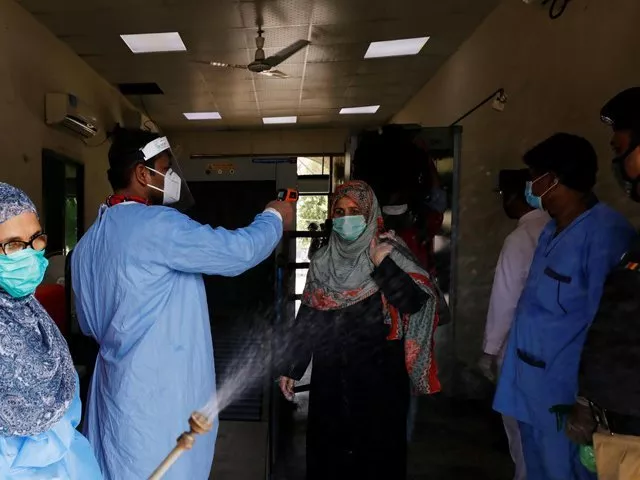Covid-19 patients struggle with stigma
Spurning them can cause stress, aggravate the disease, say doctors
KARACHI: It was two days after Siddique returned to his native town, Qazi Ahmed, from Karachi - where his son, 40-year-old Mobeen*, resides - that he received news of the latter showing symptoms for Covid-19. Living in a town 273 kilometres away from the metropolis, he could do little to help his son.But while the distance prevented him from taking care of his son, it didn't prove enough to ward off the stigma attached to the infection.
His neighbours have asked Siddique not to visit the mosque anymore, Mobeen told The Express Tribune. "They call me and ask me to tell my father to stay at home," he deplored, adding that neighbours avoided meeting any of his family members. "They express hatred towards me, lashing out at me for contracting the virus in the first place."
Mobeen said that since he had begun showing symptoms, he had been completely disconnected from his relatives and friends - and not just physically. "It's like I have developed AIDS, like I am untouchable," he said helplessly.
Mobeen came to Karachi on May 29 and began showing symptoms on June 2. Two days later, his cough worsened and he got himself tested for the coronavirus.
"Since then, I have been going through physical and mental trauma," he said. "I have to look after my wife and three children as well, but instead of supporting me in these hard times, people curse me as if I would deliberately harm them."
Mobeen's ordeal is shared by many in the metropolis.
As senior doctor, who asked not to be named, said that recently a person from Korangi, having Covid-19, was kicked out of the house by his family which feared that he may transfer the disease to them.
"The patient was compelled to live on the roadside," the doctor said. "I don't know what happened to the poor man."
Similarly, Kashif Hussain, a resident of Defence Housing Authority, said that one of his friends was admitted to a hospital for a week after he tested positive for the coronavirus. "Even though he recovered, people still avoided interacting with him," he said, adding that the lack of awareness could be harmful for society.
Pakistan Medical Association Karachi general secretary Dr Abdul Ghafoor Shoro observed that such behaviour was more common in underdeveloped areas.
"People either don't heed the virus at all or hate the person who contracts the infection," Dr Shoro said. "This behaviour is very strange."
He stressed that Covid-19 patients needed empathy too. "Social distancing is necessary but cursing an infected person could cause stress and further reduce his immunity," he explained, adding that it was because of this negative attitude and stigma that most people avoided disclosing that they were infected.
Echoing similar views, Hussain, an engineer by profession, said, "We need to change our behaviour. The virus is spreading rapidly and I fear all of us will be infected sooner or later. We cannot live peacefully if we don't change our attitude."
This resonates with Mobeen. "I am more disturbed by society's attitude than the virus," he said. "I am shattered as all of my relatives and near ones seem to view me as a 'curse'."
He called for the government to raise awareness among the public so that Covid-19 patients were no longer subjected to being social pariahs.
*NAME CHANGED TO PROTECT IDENTITY
Published in The Express Tribune, June 11th, 2020.


COMMENTS
Comments are moderated and generally will be posted if they are on-topic and not abusive.
For more information, please see our Comments FAQ